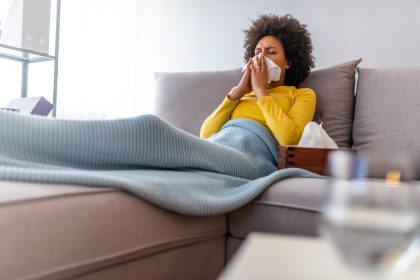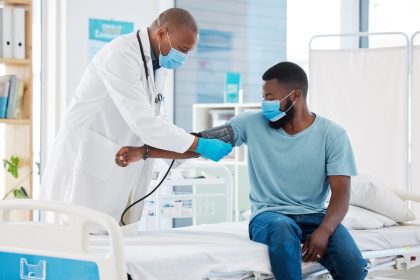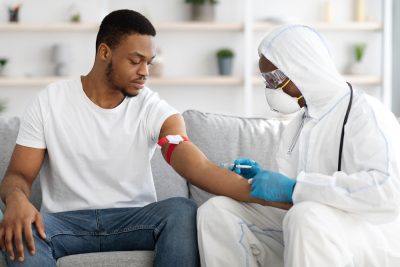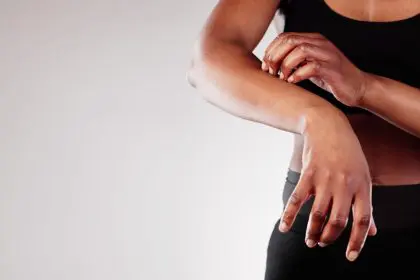
Dr. Dona Kim Murphey is a neuroscientist and neurologist, community organizer, and historian of science. She is the director of scientific affairs at CortiCare, an EEG diagnostics company and the director of medical initiatives for Project Lifeline. Murphey, who was clinically suspected of having COVID-19 but later tested negative, works to mitigate the harm of the virus in migrant and refugee populations. We spoke with Murphey about her advocacy work and the current state of systemic racism impacting health care today.
For those brothers and sisters who are confined, both Black and Brown, the pandemic is having a different impact. How is COVID-19 affecting them?
Many of us physicians have been advocating for the release of people who are incarcerated, mainly people who have committed non-violent offenses. That includes people who are immigrants in detention, [because] the circumstances are often much the same. Often the same private companies that are building private prisons are building private detention facilities for immigrants. These are very dangerous circumstances for people in terms of a pandemic. Inevitably what will happen is that disease from the outside will make its way into these confined spaces. People who are living in very crowded circumstances, with poor ventilation with poor access to health care; it’s been shown multiple times that they are at increased risk for infectious disease.
How do you think the virus got into the prison population?
It’s possible that somebody who is newly incarcerated could have brought it in from the outside. I think it’s just as plausible that one of the employees could bring it in from the outside. There aren’t things available that are powerful in reducing their risk for the disease. Soap and warm water, those things are not readily available for the population that is incarcerated [and] the hand sanitizer and personal protective equipment that they’re requiring people to wear now.
Can you describe some of the systemic racism that exists in our health care system?
We have a number of physicians that came together in Harris County to actually petition our mayor, Sylvester Turner, our county commissioner and our county judge, Lina Hidalgo, to establish a committee to look into and address these issues urgently. There is a lack of access to health information and health literacy. We have a lot of people who are uninsured or underinsured. We have a lot of people who are undocumented, therefore, they don’t have access or they have limited access to public resources.
The lack of education also may contribute to decreased access to health information and decreased health literacy. There’s a lack of access to public transportation so that you can’t even go where you need to, get [the] information … that would give us more information on COVID-19 and how to prevent ourselves from acquiring the infection.















